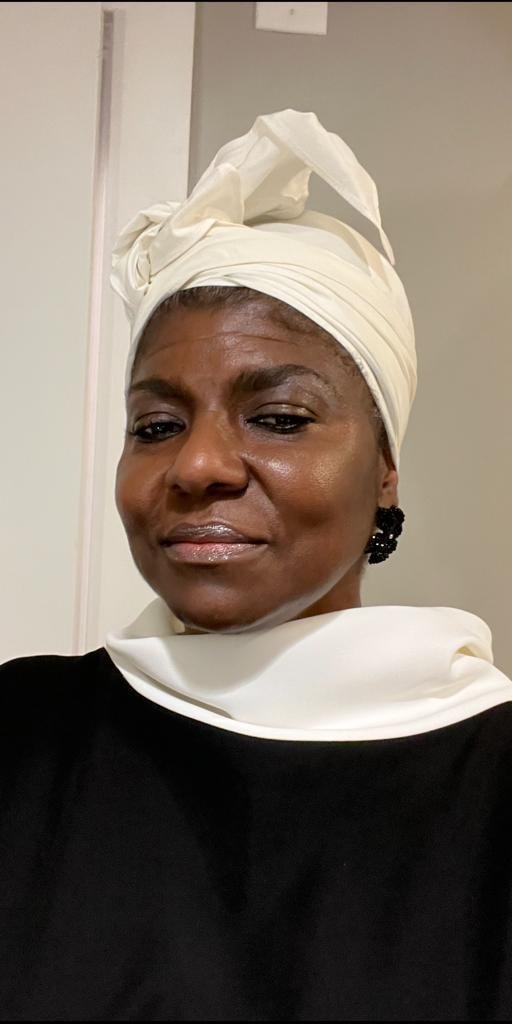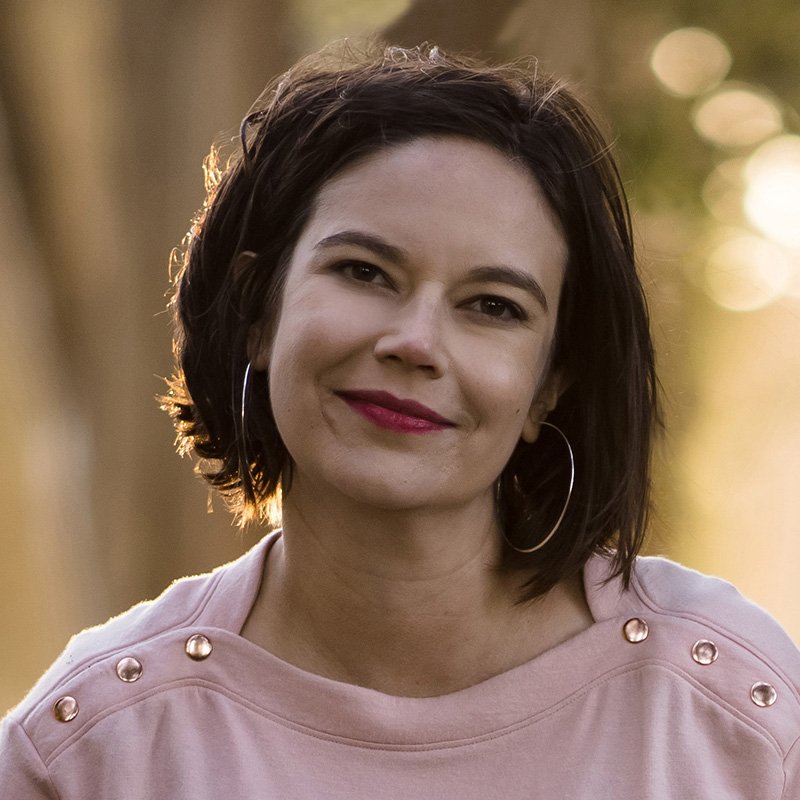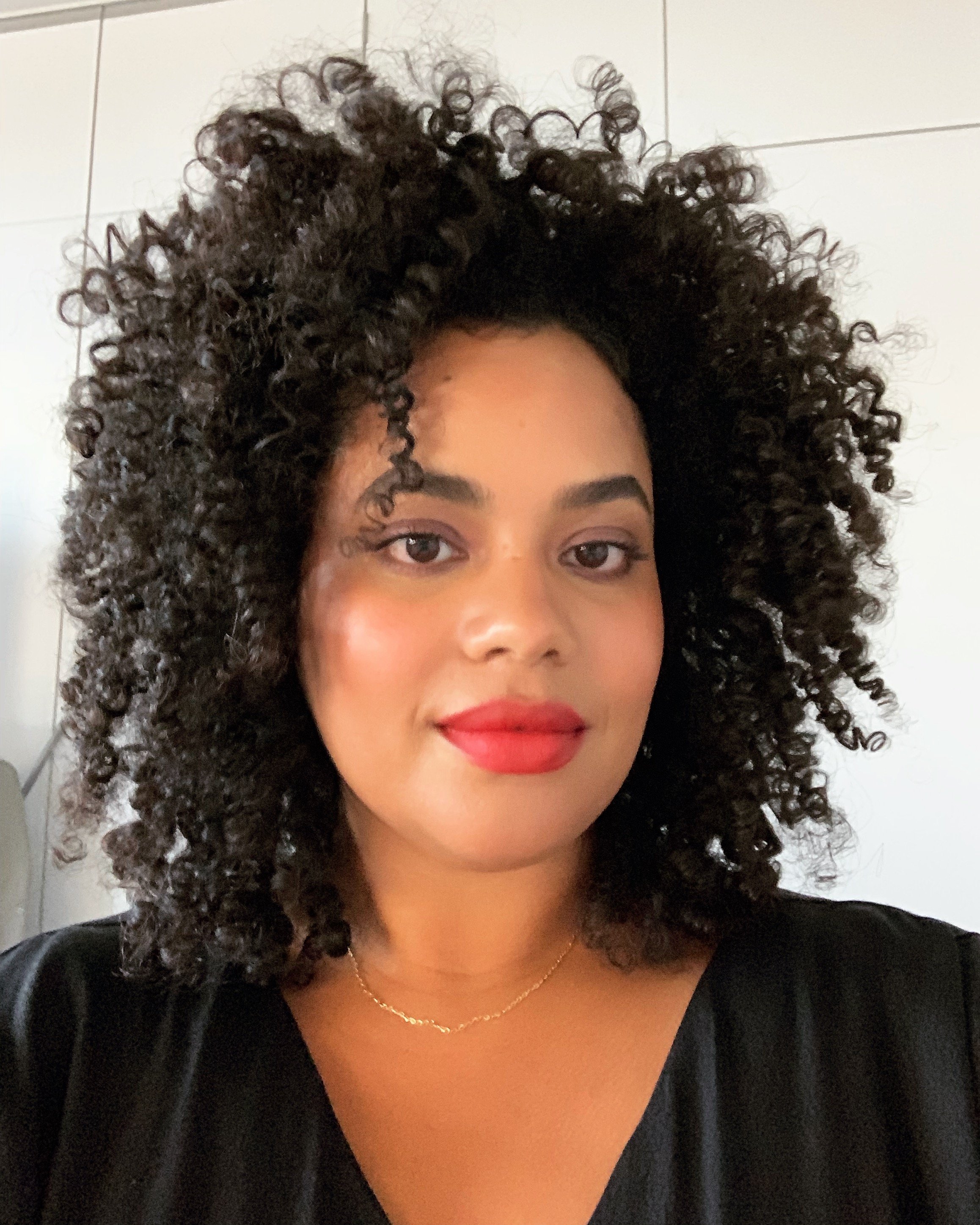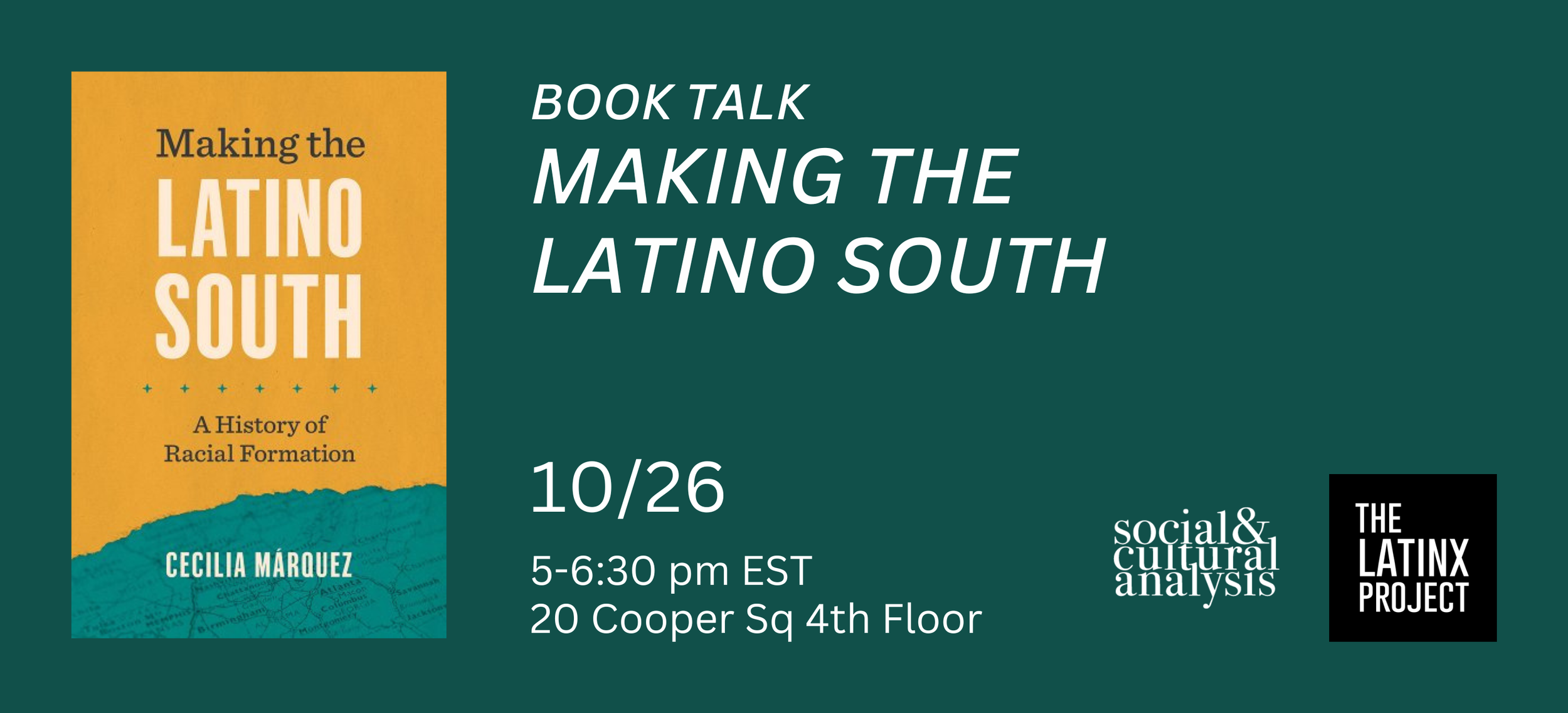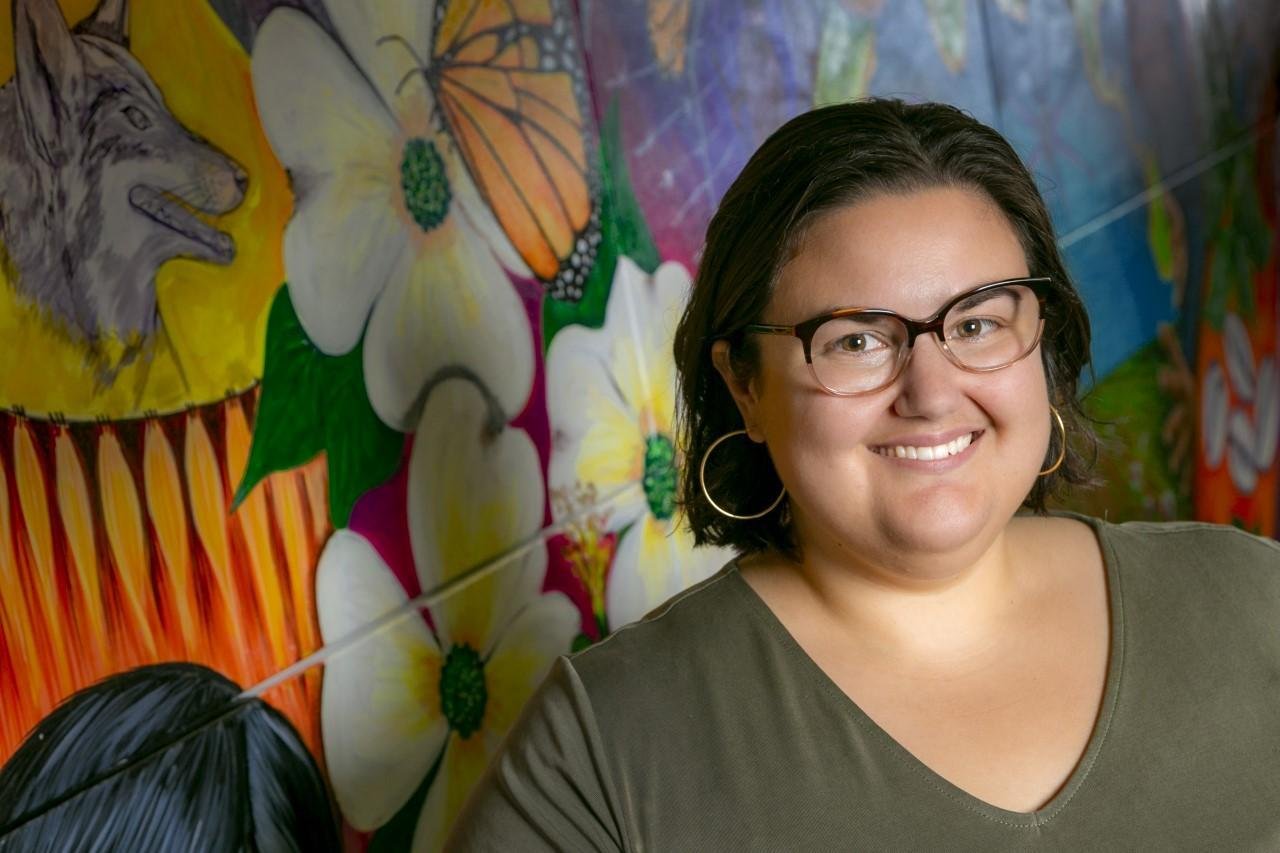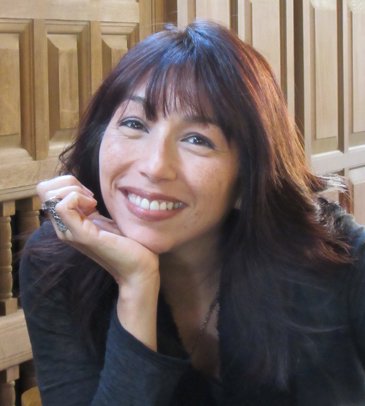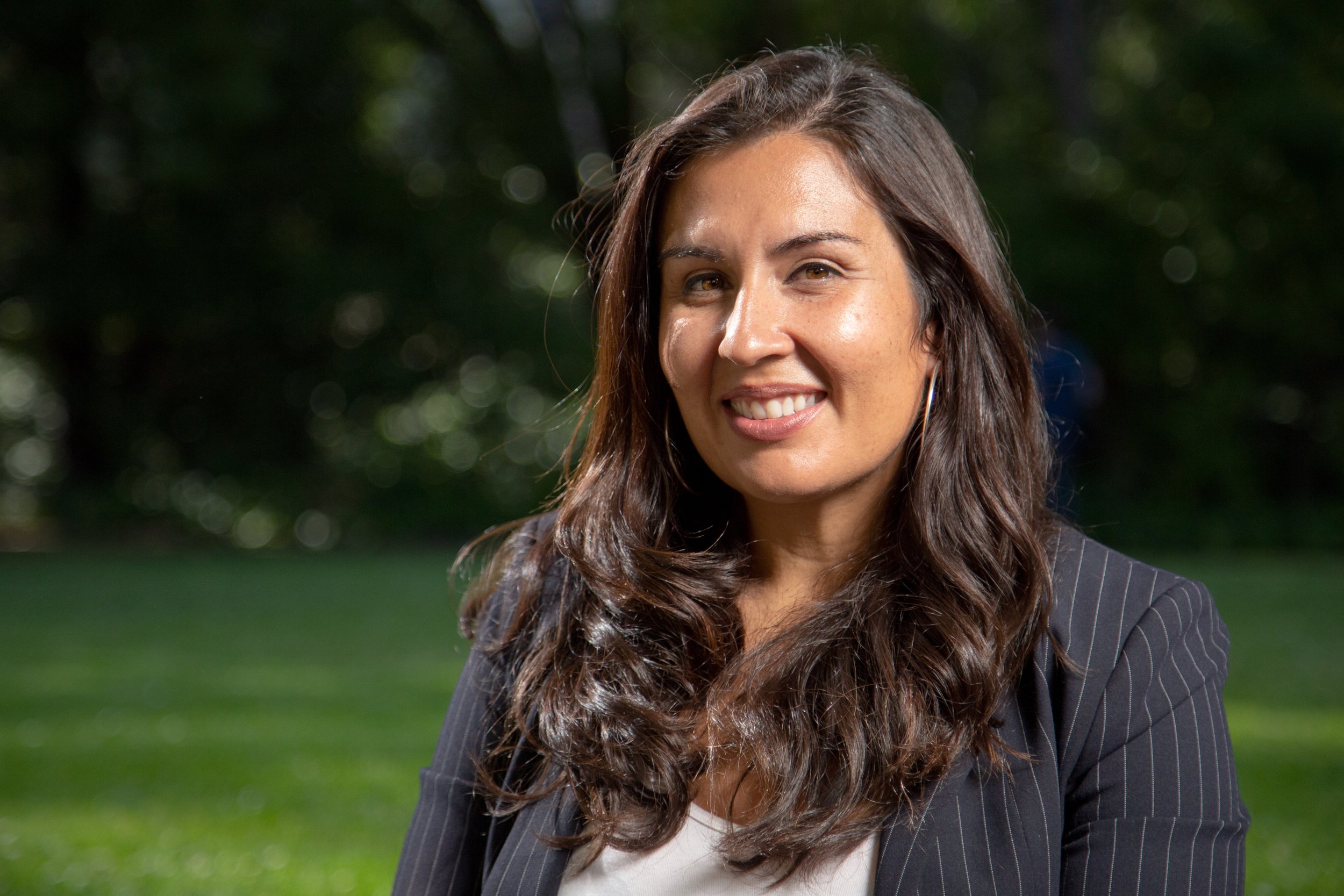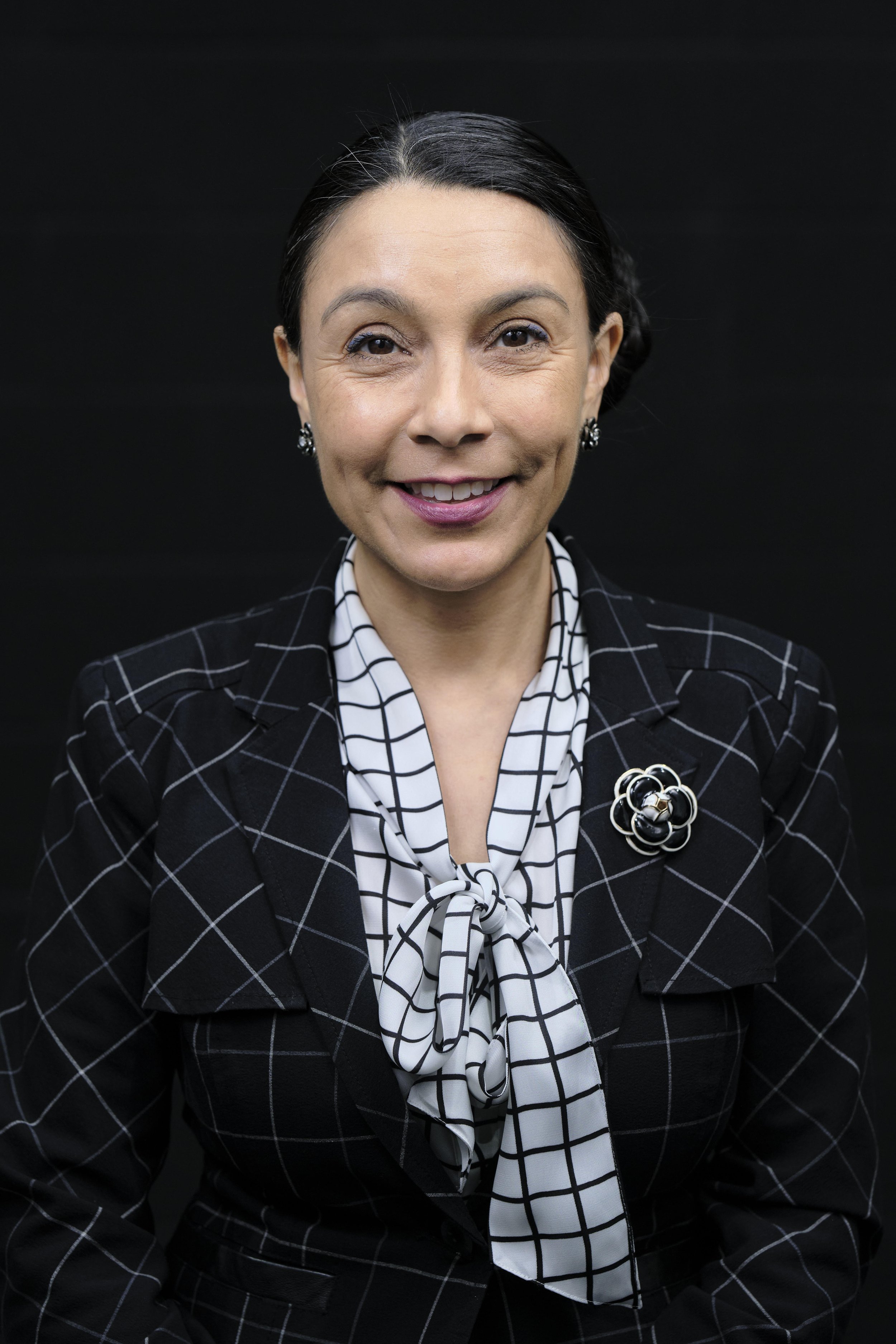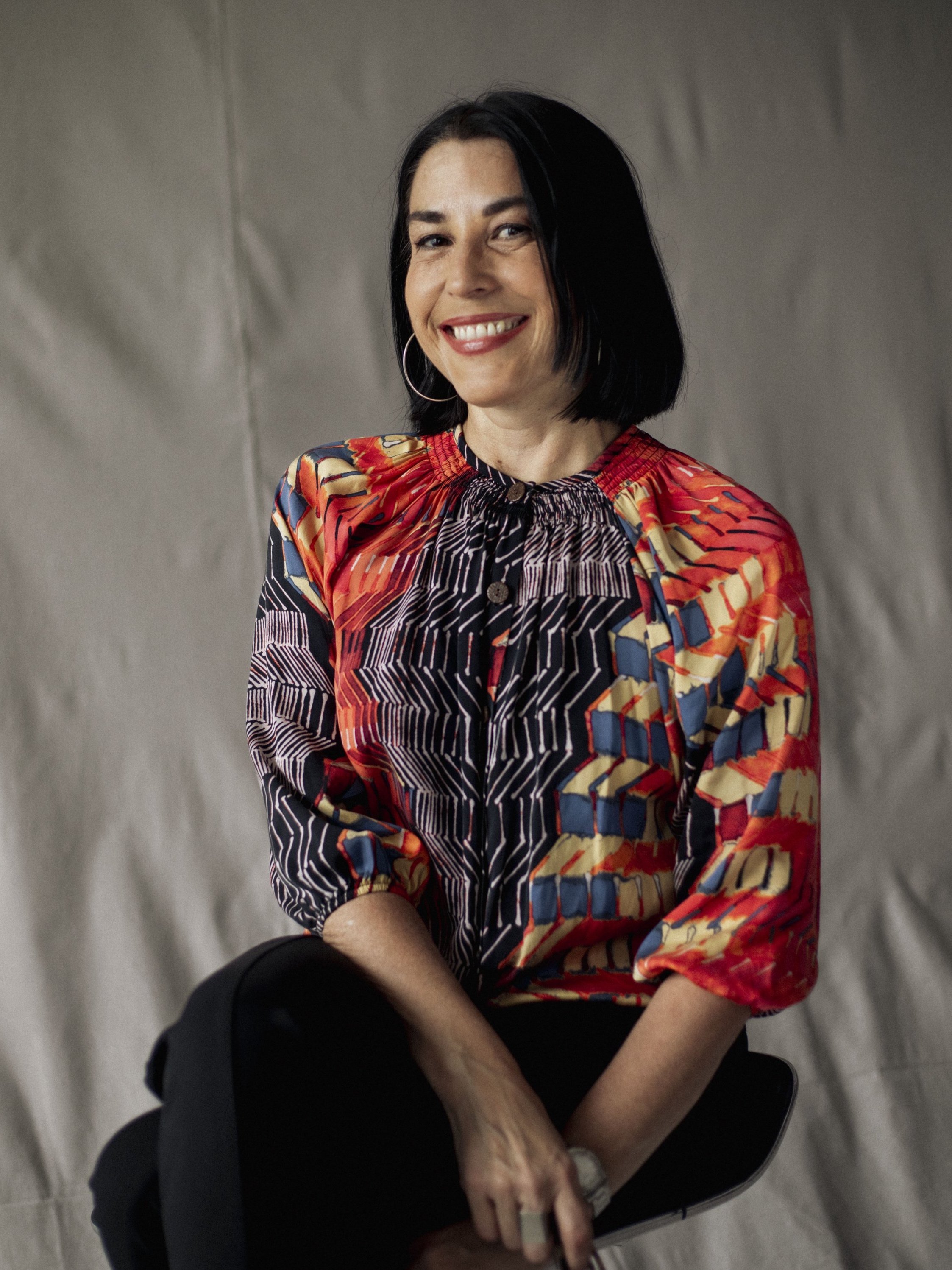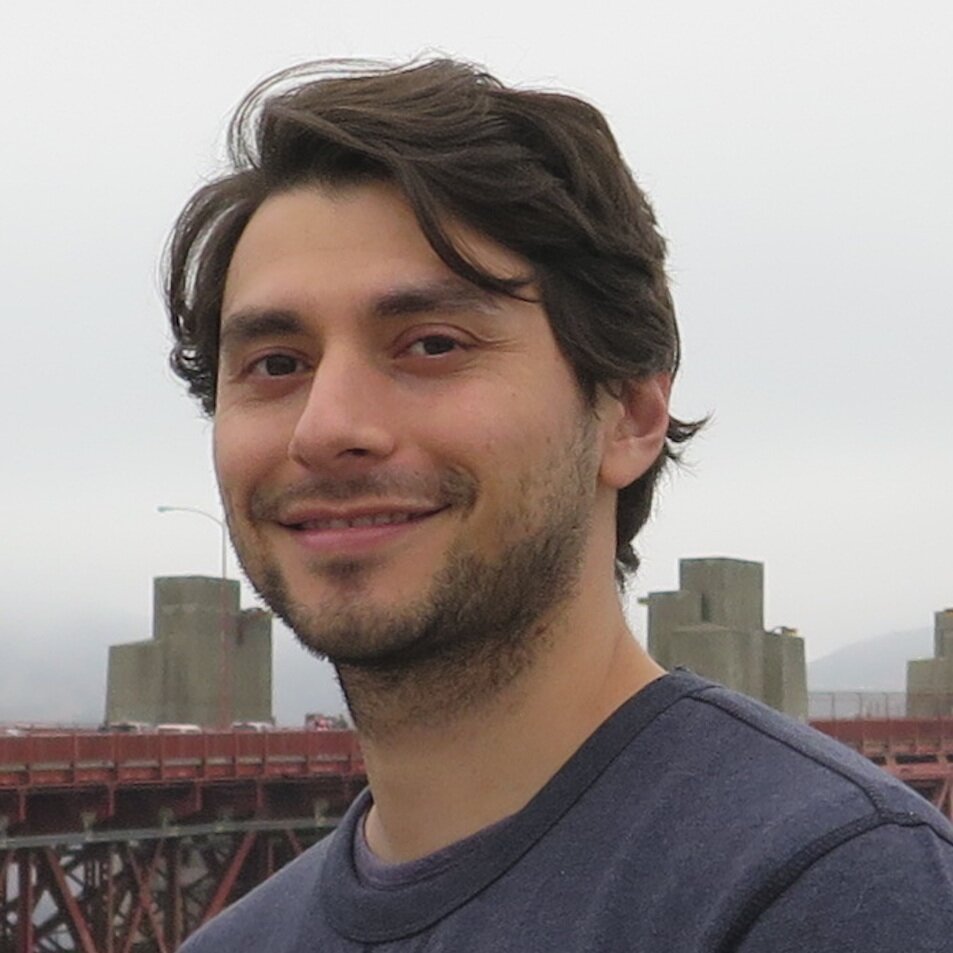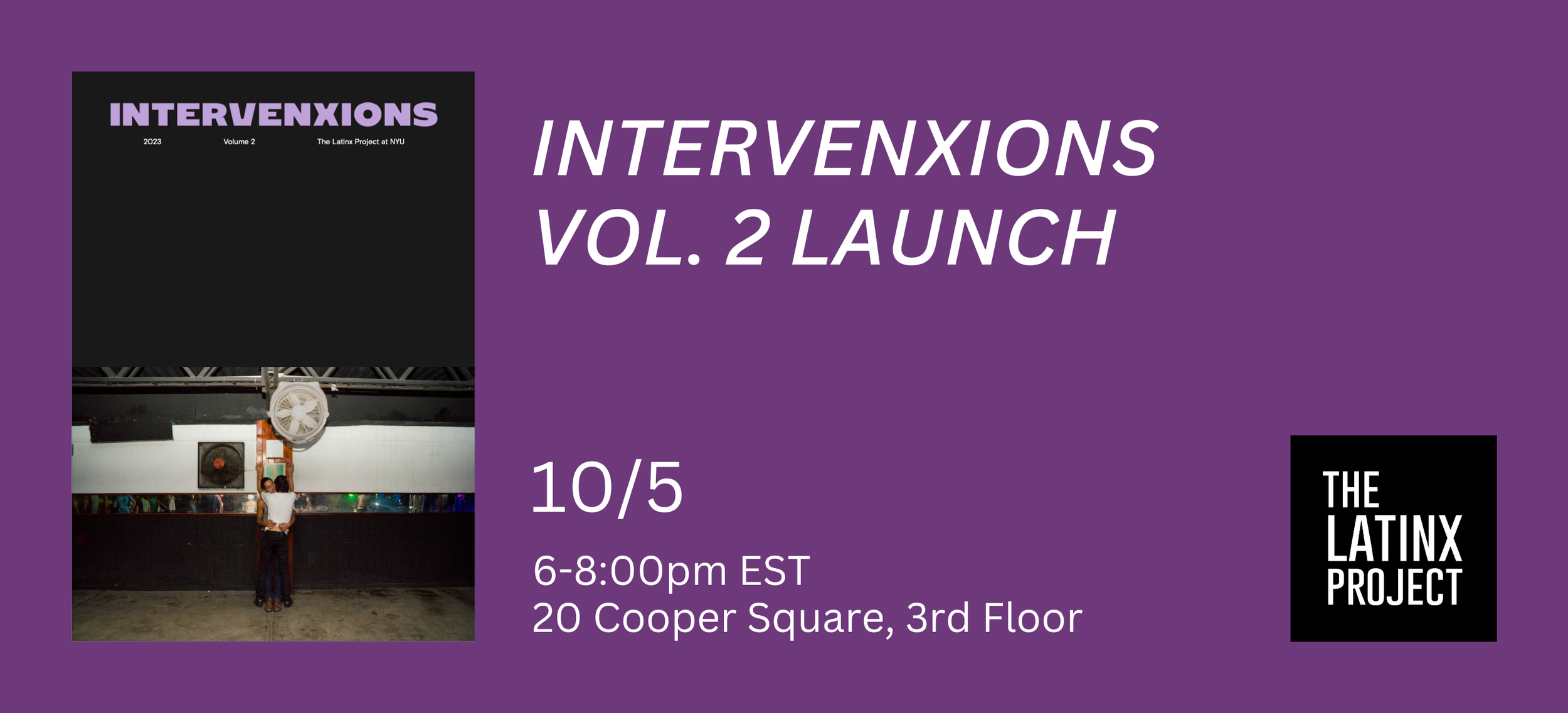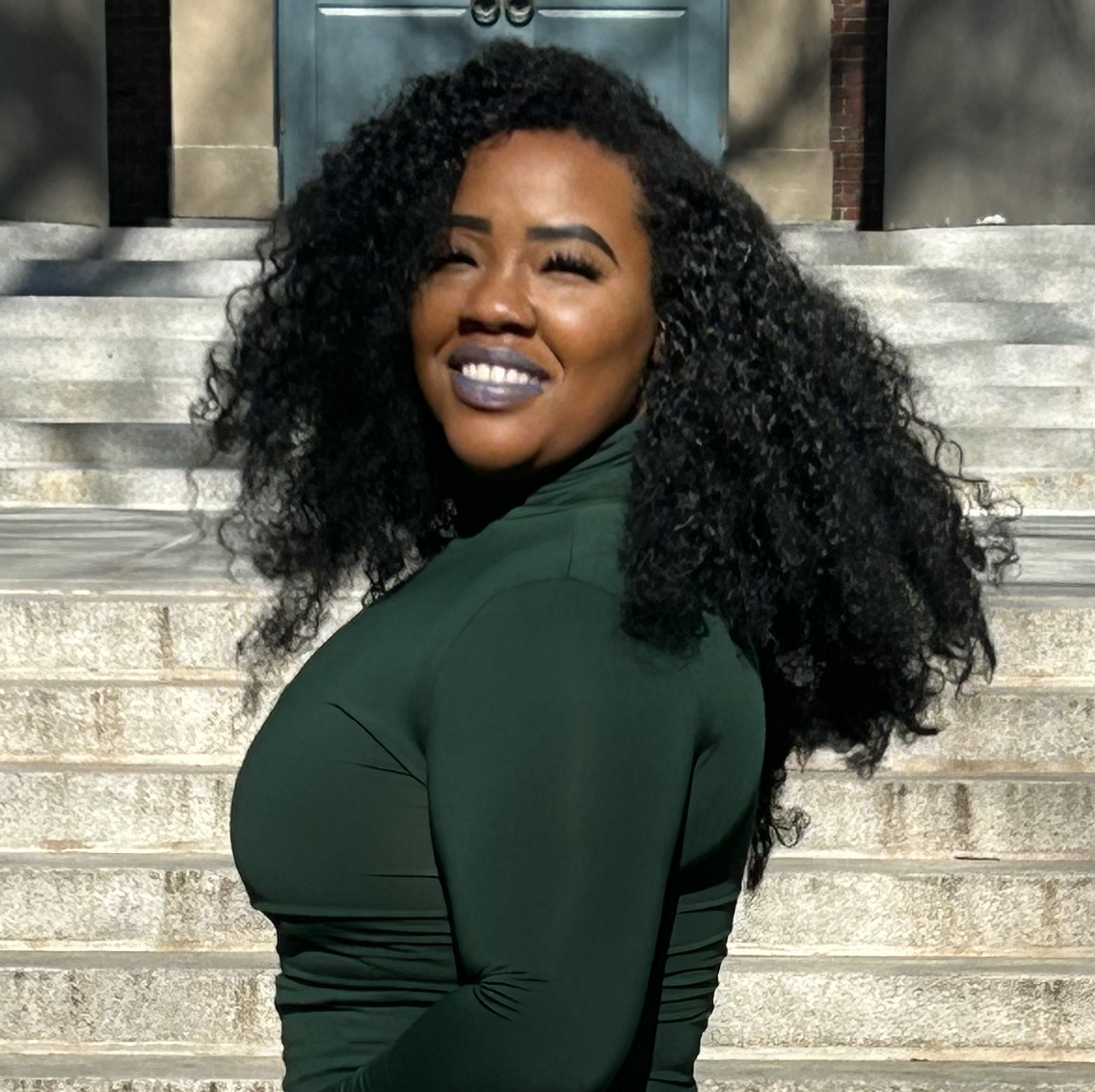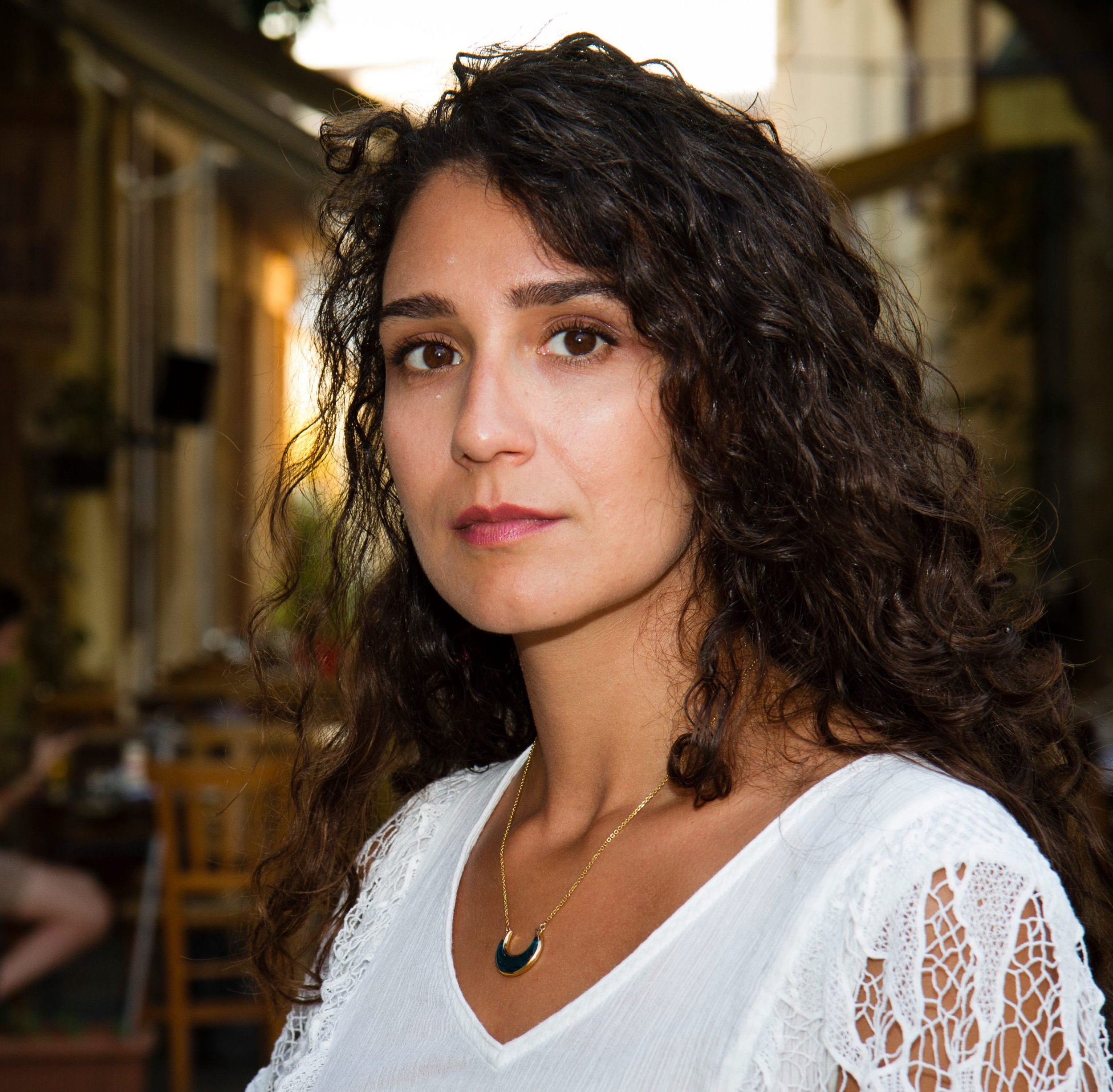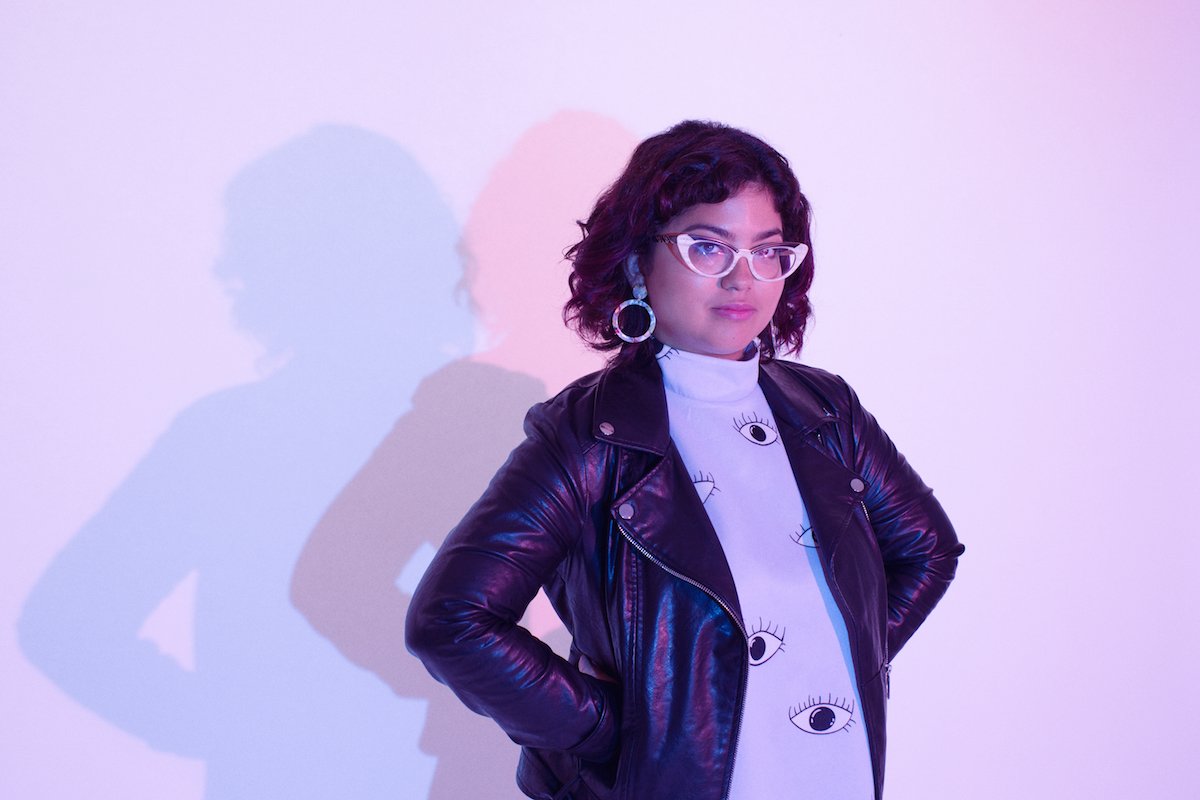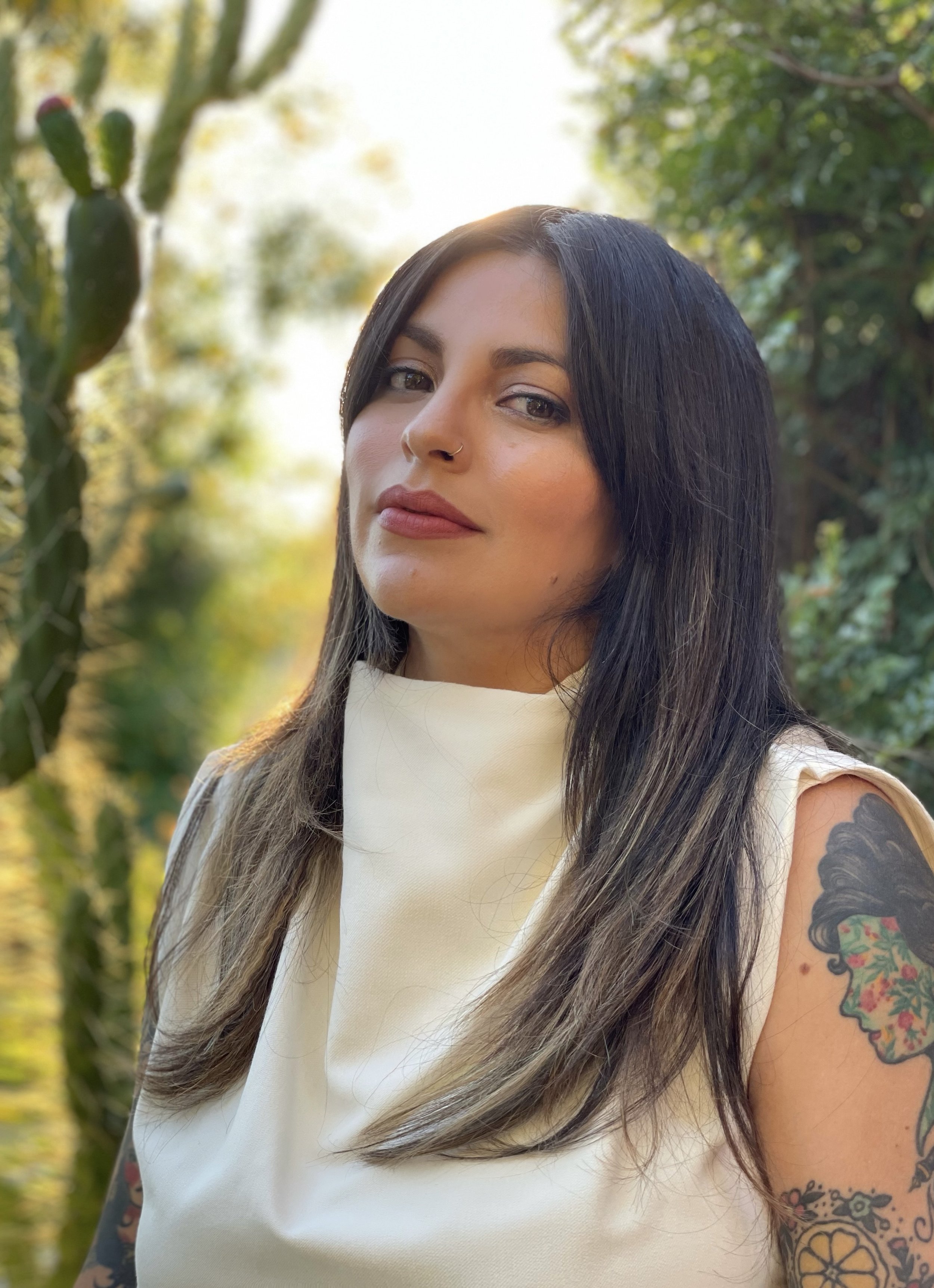
Exhibition Closing Celebration: Allow Me to Gather Myself
Join us for an evening closing reception at 20 Cooper Square (4th Floor) for Mildred Beltré's Allow Me to Gather Myself. Food and drinks will be provided.
“Allow Me to Gather Myself” is made possible with support from the Andrew W. Mellon Foundation and the Ford Foundation.
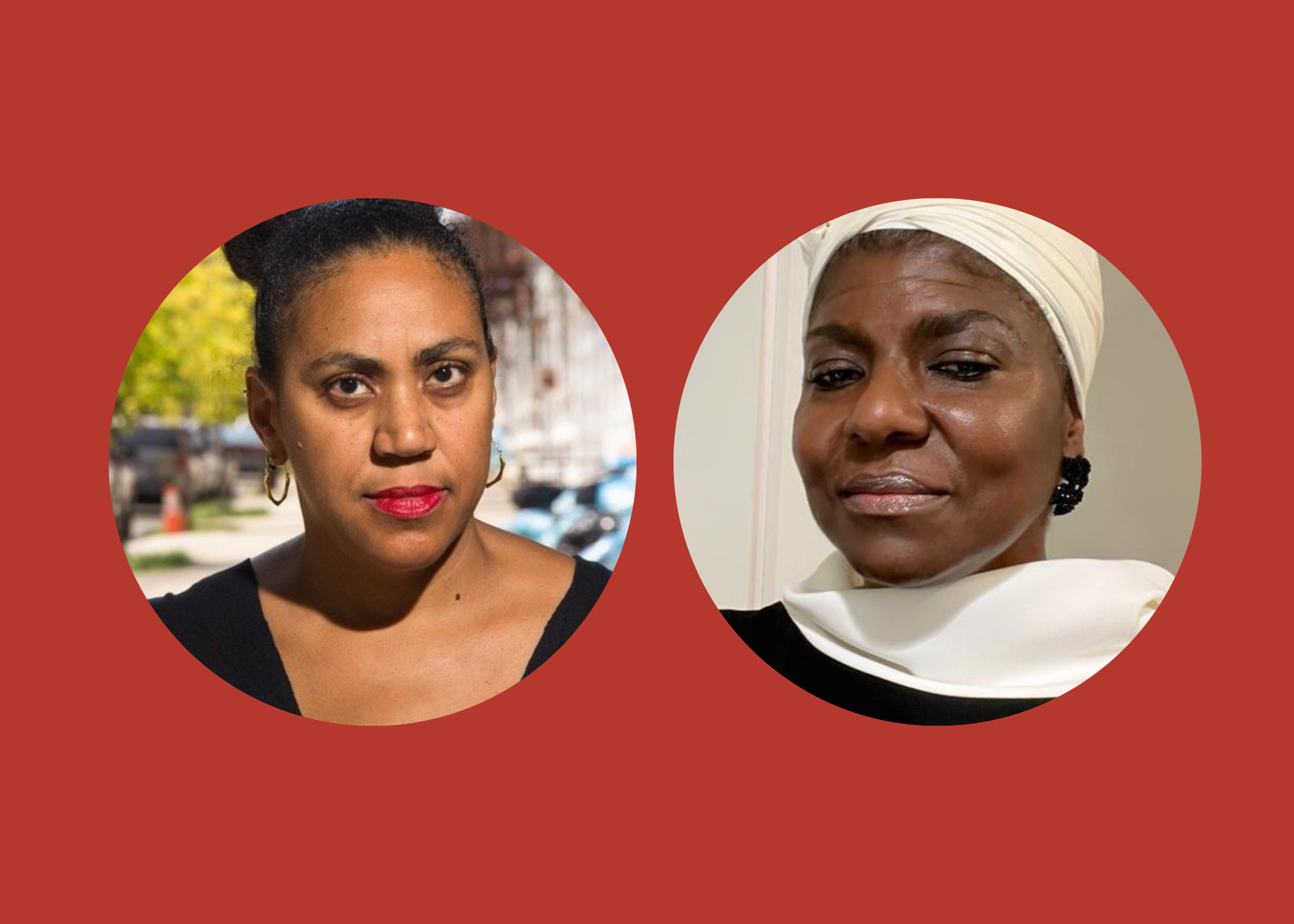
Mildred Beltré in conversation with María Magdalena Campos-Pons
Join us for this dynamic virtual event featuring artist-in-residence Mildred Beltré in conversation with María Magdalena Campos-Pons. Mildred Beltré’s work is on view at NYU in the exhibition Allow Me to Gather Myself. María Magdalena Campos-Pons’ work is featured in the exhibition Behold at the Brooklyn Museum (September 15 - January 14, 2024) which spans nearly four decades.
“Allow Me to Gather Myself” is made possible with support from the Andrew W. Mellon Foundation and the Ford Foundation.
Participants
Mildred Beltré is a multi-disciplinary artist invested in grassroots activism, social justice, and political movements. Her work spans photography, print-making, drawing, text-based formats, and fiber arts. Across these diverse mediums, Beltré carries forth the legacies of revolutionary protests and civil rights movements, while bringing in elements of desire, pleasure, and humor. She is the co-founder of the Brooklyn Hi-Art! Machine (BHAM), an arts initiative in Crown Heights, Brooklyn that addresses gentrification and community building.
Maria Magdalena Campos Pons
“I claim space for women's issues, collecting and telling stories of forgotten people, in order to foster a dialogue to better understand and propose a poetic, compassionate reading of our time. My work over the past 35 years addresses Postcoloniality and the complexities that entangle the narratives, connections and mutual dependency of the North and the South. My work speaks to an ancestral knowledge and tradition to give a voice to the darkest narratives with grace and aesthetic elegance. Fragility, ephemerality, and a transient quality of time and place are visible components in my vocabulary, which I explore through video, film, photography, installation, and performance. I am compelled by the democratic process of art-making that challenges the participation, presence, and bodily immersion of the viewer.” - Maria Magdalena Campos Pons
Event Recap

Puta Life: Seeing Latinas, Working Sex, Book Talk with Juana Maria Rodriguez
In Puta Life, Juana María Rodríguez probes the ways that sexual labor and Latina sexuality become visual phenomena. Drawing on state archives, illustrated biographies, documentary films, photojournalistic essays, graphic novels, and digital spaces, she focuses on the figure of the puta—the whore, that phantasmatic figure of Latinized feminine excess. Rodríguez’s eclectic archive features the faces and stories of women whose lives have been mediated by sex work's stigmatization and criminalization—washerwomen and masked wrestlers, porn stars and sexiles. Rodríguez examines how visual tropes of racial and sexual deviance expose feminine subjects to misogyny and violence, attuning our gaze to how visual documentation shapes perceptions of sexual labor.
This event is free & open to the public.
*This event is organized by the NYU Center for the Study of Gender and Sexuality in collaboration with the Department of Social Cultural Analysis at NYU, Media Culture and Communication and the Latinx Project.
Please contact the NYU Center for the Study of Gender and Sexuality for more information at csgs@nyu.edu.
Participants
Juana María Rodríguez is Professor of Ethnic Studies and Core faculty in Performance Studies at UC Berkeley. A graduate of the Ethnic Studies Ph.D. at Berkeley, her research focuses on racialized sexuality and gender; queer of color theory and activism; affect and aesthetics; technology and media arts; law and critical race theory; and Latinx and Caribbean literatures and cultures. Professor Rodríguez is the author of three books, Puta Life: Seeing Latinas, Working Sex (Duke UP 2023); Sexual Futures, Queer Gestures, and Other Latina Longings (NYU Press 2014) which won the Alan Bray Memorial Book Prize at the Modern Language Association and was a Lambda Literary Foundation Finalist for LGBT Studies, and Queer Latinidad: Identity Practices, Discursive Spaces (NYU Press, 2003). She also served as a co-editor of the special issue of TSQ: Transgender Studies Quarterly on “Trans Studies en las Americas.” In addition to her publications in academic journals internationally, her work has been featured in Aperture; on NPR’s Latino USA, NBC.com, Canadian News Network, The Chronicle of Higher Education, and Cosmopolitan for Latinas.
Event Recap

Beyond Latinx Erasure in Hollywood
Latinxs continue to be severely underrepresented from film, broadcast television and streaming in front of and behind the camera. This is documented in the UCLA Hollywood Diversity Reports which explore relationships between diversity and the bottom line in the Hollywood entertainment industry.
Focusing on issues of labor, employment and representation, this panel seeks to consider the institutional, structural and societal transformations needed to advance Latinx representation in Hollywood. Panelists include filmmaker Alex Rivera, writer and filmmaker Diana Peralta, editor-in-chief Cristina Escobar of LatinaMedia.Co and Ana-Christina Ramón, inaugural director of the Entertainment and Media Research Initiative (EMRI) at UCLA.
*This event is organized as part of The Latinx Media Observatory Working Group.
About the working group:
The Latinx Media Observatory Working Group will provide a glance at the state of Latinx representation in U.S. Film, Television, and SVOD platforms. Integrated by a team of scholars led by Arlene Dávila, Juan Piñón, Marcel Salas, and Ramón Resendiz. This working group looks to offer initially an inventory of the content produced in different media in the last two decades with a main Latinx ensemble, and the participation of Latinx talent in key leading roles, while initiating a conversation about the media industrial strategies of representation and its results on specific narratives, stereotypes, diversity, and inclusion, and the positioning of Latinx people in the screen.
Panelists
Cristina Escobar is the co-founder and editor-in-chief of LatinaMedia.Co, a digital publication uplifting Latina and gender non-conforming Latinx perspectives in media. A member of the Critics Choice Association and the Latino Entertainment Journalists Association, she's a Rotten-Tomatoes-approved critic who writes at the intersection of race, gender, and pop culture. Adding to her bylines in outlets like the A.V. Club, Glamour, NPR, Refinery29, Remezcla, TODAY, and Vulture, Cristina is also a regular contributor to Latino Rebels, POPSUGAR, and Roger Ebert. She lives in Santa Fe with her husband, two kids, and rescue dog.
Diana Peralta is a Dominican-American writer, director, and producer from New York City. Her debut feature film, DE LO MIO (Criterion Collection), had its world premiere as the closing night film of BAMcinemaFest in 2019 and was initially distributed by HBO. Diana was featured in Filmmaker Magazine's "25 New Faces of Independent Film". She is in development on her second feature, NO LOVE LOST. She also wrote and developed an original TV pilot in partnership with showrunner Tanya Saracho and Universal Content Productions (UCP) through the Ojalá ignition Labs fellowship. Diana currently teaches directing at Columbia University's Film MFA program. Aside from her film work, she has worked as a creative producer in advertising for 9+ years.
Dr. Ana-Christina Ramón is the inaugural Director of the Entertainment and Media Research Initiative (EMRI) at UCLA. The initiative is housed in the Institute for Research on Labor and Employment (IRLE). Dr. Ramón is a social psychologist who has worked on social justice issues related to equity and access in higher education and the entertainment industry for about two decades. As the founding director of EMRI, she manages the research initiative, which produces the UCLA Hollywood Diversity Report series, and additional research projects on entertainment and media. She is now the lead author of the bi-annual Hollywood Diversity Report. She co-edited a book (with Dr. Darnell Hunt) titled Black Los Angeles: American Dreams and Racial Realities (New York University Press, 2010). She is the inaugural Latino Film Institute Scholar. Dr. Ramón has a B.A. in psychology from Stanford, and an M.A. and Ph.D. in social psychology from the University of Michigan, Ann Arbor.
Alex Rivera is an award-winning filmmaker whose work explores themes of globalization, migration, and technology. His first feature film, a cyberpunk thriller set in Tijuana, Mexico, ‘Sleep Dealer,’ won multiple awards at Sundance and Berlin. Rivera’s second feature, a documentary/scripted hybrid set in an immigrant detention center, ‘The Infiltrators,’ won the NEXT: Audience Award and the Innovator Award at the 2019 Sundance Film Festival, and was released theatrically in the U.S. Rivera’s work has been supported by the Ford Foundation, Creative Capital, the Open Society Institute, and many others. He is a 2021 MacArthur Fellow and an Associate Professor of Filmmaking Practice at ASU's Sidney Poitier New American Film School.
Event Recap

Book Talk, Making the Latino South: A History of Racial Formation
Professor Cecilia Márquez discusses her upcoming book, Making the Latino South: A History of Racial Formation (University of North Carolina Press). Join us for this book talk on October 26, 2023 from 5:00-7:00 pm at 20 Cooper Square, fourth floor. This event is co-organized with the Department of Social & Cultural Analysis.
**Books will be available for purchase after the event.
About the Book:
In the 1940s South, it seemed that non-Black Latino people were on the road to whiteness. In fact, in many places throughout the region governed by Jim Crow, they were able to attend white schools, live in white neighborhoods, and marry white southerners. However, by the early 2000s, Latino people in the South were routinely cast as "illegal aliens" and targeted by some of the harshest anti-immigrant legislation in the country. This book helps explain how race evolved so dramatically for this population over the course of the second half of the twentieth century.
Márquez guides readers through time and place from Washington, DC, to the deep South, tracing how non-Black Latino people moved through the region's evolving racial landscape. In considering Latino presence in the South's schools, its workplaces, its tourist destinations, and more, Marquez tells a challenging story of race-making that defies easy narratives of progressive change and promises to reshape the broader American histories of Jim Crow, the civil rights movement, immigration, work, and culture.
Participants
Cecilia Márquez
Cecilia Márquez is the Hunt Family Assistant Professor in History and previously taught Latino/a Studies at New York University. She earned her MA and PhD in American History at the University of Virginia. She also holds a BA in Black Studies and Gender and Sexuality Studies from Swarthmore College.
Cristina Beltrán
Cristina Beltrán is an Associate Professor in the department of Social & Cultural Analysis at New York University. A political theorist by training, her research focuses on modern and contemporary political theory, Latino and U.S. ethnic/racial politics, and feminist and queer theory. She is author of The Trouble with Unity: Latino Politics and the Creation of Identity (Oxford University Press, 2010) and Cruelty as Citizenship: How Migrant Suffering Sustains White Democracy (University of Minnesota Press, 2020). Along with Libby Anker, she is also co-editor of the journal Theory & Event.
Event Recap

¿Y dónde está mi gente?: An Evening with Three Afro-Latina Poets
This is in person taking place at:
20 Cooper Sq
New York, NY, 10003

Allow Me to Gather Myself Tour with the Artist
Join us for a public guided tour of “Allow Me to Gather Myself” with the artist in residence Mildred Beltré
October 17th, 4 - 5 p.m. - Artist Tour with Mildred Beltré .
**After you can join us for our ¿Y dónde está mi gente?: An Evening with Three Afro-Latina Poets event at 6 p.m.
“Allow Me to Gather Myself”, featuring Mildred Beltré, multidisciplinary artist, from September 8th to Dec 7th, 2022, at 20 Cooper Sq, New York, NY.

Institutionalizing Latinx Studies
What is unique about doing Latinx Studies at this moment? Leaders from institutions across the country will discuss new Latinx Studies centers and initiatives, offering models for others seeking to grow Latinx Studies at their own universities. Featured panelists include Dr. Veronica Terriquez (UCLA Chicano Studies Research Center), Michael Rodríguez-Muñiz (UC Berkeley Sociology), Arlene Dávila (The Latinx Project) and G. Cristina Mora (UC Berkeley Institute of Governmental Studies). This conversation will be moderated by Simon Trujillo (NYU Native Studies Forum).
If you are interested in this topic, we encourage you to engage with our 2021 symposium, Latinx at 50, which celebrated the 50th anniversary of Latinx Studies. Watch the virtual panels here.
Panelists
G. Cristina Mora is Associate Professor of Sociology and the Co-Director of the Institute of Governmental Studies at UC Berkeley. Her research focuses mainly on immigration, categorization, and racial and political attitudes in the United States. Her first book, Making Hispanics, was published by the University of Chicago Press and provides the first historical account of the rise of the “Hispanic/Latino” category in the United States. Mora has received numerous awards for her scholarship from the American Sociological Association, and her research been the subject of various national media segments in venues like the Atlantic, the New Yorker, NPR, and Latino USA. In 2020, she helped to oversee the largest survey on Covid-19 and partisan politics in California and published some of the state’s first briefs and academic articles on the subject. She is currently working on her next book, California Color Lines, which examines inequality and racial and immigration attitudes in California. In 2021 and 2022, she received the UCB Graduate Mentoring Award, the Chancellors Award for Advancing Equity and Inclusion, and led UC Berkeley’s first social-science cluster hire on the issue of “Latinos and Democracy.” In 2023 Mora received the nation’s first “Latino Social Science Pipeline” award from the Department of Education to advance research opportunities in the area of Latino Social Science.
Dr. Veronica Terriquez is a sociologist who whose research focuses on social inequality, civic engagement, health, and youth transitions to adulthood among Latinx and other diverse populations. As CSRC director, Terriquez seeks to build on the center’s existing projects and develop new initiatives on Latinx communities that align with the University’s mission to serve the state and maintain a community presence. Terriquez is an associate professor of urban planning and Chicana/o and Central American studies at UCLA. She received a doctorate in sociology at UCLA, a master’s degree in education at UC Berkeley, and a bachelor’s degree in sociology at Harvard University. During the 2020-21 academic year she was a fellow at the Stanford Center for the Advance Studies in the Behavioral Sciences. Her research has been published in the American Sociological Review, Social Problems, Social Science & Medicine, Community Development, Education Policy, Gender & Society, and other peer-reviewed journals.
Michael Rodríguez-Muñiz is an associate professor of sociology at the University of California, Berkeley. He is part of Berkeley’s Latinx and Democracy cluster. His research and teaching focuses on race and the politics of knowledge, primarily in Latinx communities and movements. His first book, Figures of the Future: Latino Civil Rights and the Politics of Demographic Change (Princeton University Press, 2021), examines contemporary political struggles and meaning-making processes through which individuals and societies come to envision and sense demographic change. The book is an extension of his award-winning dissertation. It has been awarded the best book prize from the American Sociological Association’s Latino/a Sociology section and Cultural Sociology section and received an honorable mention from the Collective Behavior and Social Movements Section. His work has also appeared in the American Journal of Sociology, American Journal of Cultural Sociology, Du Bois Review, American Behavioral Scientist, and Ethnography, among other outlets. He has also contributed chapters to several edited volumes, most recently The Oxford Handbook of W.E.B. Du Bois. He is currently engaged in collaborative research projects on demographic imaginaries and race and political trust, respectively. In addition, he is working on an oral history project on the afterlives of political repression against Puerto Rican anticolonial movements in Chicago. This project involves the creation of a Puerto Rican-focused community archive.
Simón Ventura Trujillo is an Assistant Professor of Latinx Studies in the English Department at New York University. His book, Land Uprising: Native Story Power and the Insurgent Horizons of Latinx Indigeneity (University of Arizona Press, 2020), explores Indigenous land reclamation to rethink connections between Native storytelling practices and Latinx racialization across overlapping colonial and nation-state forms. It centers on the cultural production of the New Mexican land grant reclamation movement, La Alianza Federal de Mercedes. A formative organization of the Chicanx movement known for its armed raid of the Tierra Amarilla courthouse in 1967, La Alianza waged a dynamic and controversial campaign for the recovery of Mexican and Spanish land grants that had been lost in the aftermath of the Mexican-American War in the mid-19th century. This book situates La Alianza’s writings alongside a heterogeneous archive of Indigenous and feminist borderland literature by Leslie Marmon Silko, Ana Castillo, Simon Ortiz, and the Zapatista Uprising in Chiapas, Mexico. In doing so, his work explores unexamined intersections between Indigenous, Chicanx, and Latinx cultural politics and contributes to critiques of colonial modernity and settler sovereignty in the Americas.
Event Recap
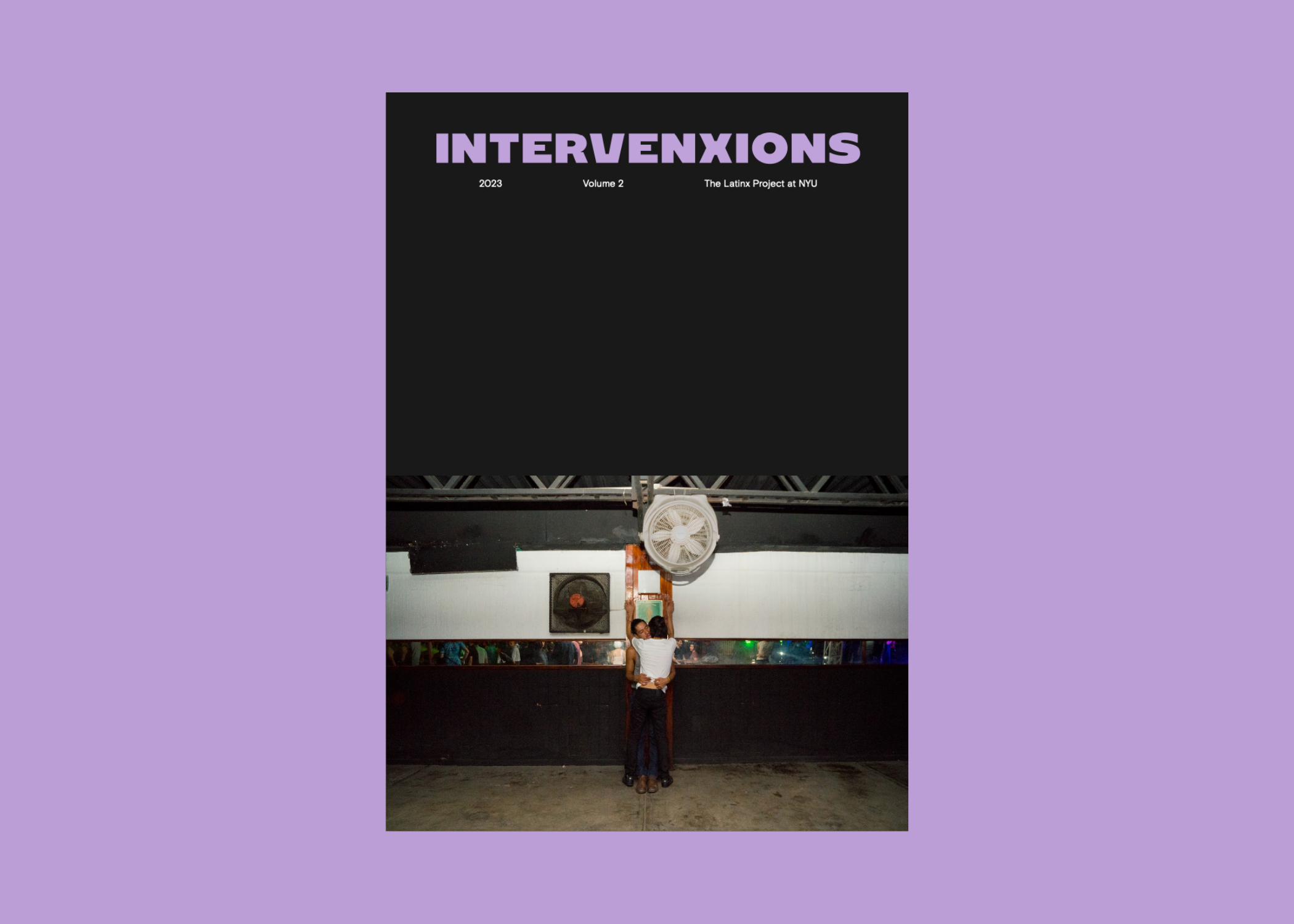
Intervenxions: Volume 2 Launch
Join us in person on Thursday, October 5 from 6:00-8:00pm for the launch of Intervenxions' second printed volume, featuring fifteen original essays from some of the publication's key contributors. Including essays on visual art, music, architecture, spatial politics, activism, and community-building, Intervenxions' second volume highlights the pressing themes of our collective cultural sphere and the urgencies informing the work we do.
A limited number of copies will be available at this event priced at $20 and payable in cash.
Volume 2 Contributors:
Clara Maria Apostolatos
Julianne Chandler
Jorge Cruz
Marcos Echeverría Ortiz
Wilfred Guerron
Laura G. Gutiérrez
Tanya Katerí Hernández
José A. Laguarta Ramírez
Janel Martinez
Neyda Martinez
Sebastián Meltz-Collazo
Elizabeth Mirabal
Néstor David Pastor
Alex Santana
Kale Serrato Doyen
Image credit: “Amor,” 2018 © by Amina Cruz

Independent Writers & Creative Cultural Equity
Moderated by Carina del Valle Schorske and featuring Katelina “Gata” Eccleston, Elisa Gonzalez, Eva Recinos, and Alex Zaragoza, this panel conversation considers challenges and opportunities for solidarity among independent writers amidst changes in creative industries from magazines to Hollywood.
This panel takes place September 28, 2023 from 4:00pm to 5:30pm on the 4th floor of 20 Cooper Square.
Panelists
Carina del Valle Schorske is a writer and translator. She has been published in many venues including The Believer, The New Yorker, the Virginia Quarterly Review, and the New York Times Magazine, where she is a contributing writer. She won a National Magazine Award for her cover story on grief and belonging on apocalyptic dance floors in 2021, and earned her PhD in Comparative Literature from Columbia University in 2022. Her debut essay collection, The Other Island, is forthcoming from Riverhead.
Katelina “Gata” Eccleston is an internationally renowned music historian/critic, artist, and culture expert recognized for her efforts in bridging the gap between Academia, the Latin music Industry, and the public through her critically acclaimed platform Reggaeton Con La Gata. RXG is the first Bilingual platform dedicated to the intersectional analysis, musicology, and History of Reggaeton Music. Her podcast Perreo 101 is the first Bilingual podcast in English and Spanish ever, and is regularly featured in Colleges worldwide. Her niche curations help shape the landscape of high profile Reggaeton related projects such as NEON by Netflix, De La Calle by Paramount Studios, Spotify Studios + Futuro Studios LOUD: The History of Reggaeton, and high-profile publications such as TIME, The Washington Post, Rollingstone, LA Times, NY Times Popcast and many more.
Elisa Gonzalez is a poet, essayist, and fiction writer. She is the author of the poetry collection Grand Tour (FSG 2023). Her poetry and prose appears in The New Yorker, The Paris Review, The New York Times Magazine, The Drift and elsewhere. She has received fellowships from the Bread Loaf Writers’ Conference, American Academy of Arts and Letters, Rolex Foundation, and the U.S. Fulbright program. In 2020, she received a Rona Jaffe Foundation Writer’s Award. She lives in Brooklyn.
Eva Recinos is an arts and culture journalist and creative non-fiction writer based in Los Angeles. Her reviews, features, and profiles have been featured in the Los Angeles Times, KCET, The Guardian, Hyperallergic, Art21, Aperture, Poets & Writers Magazine, The Creative Independent and more. She was a 2019 nominee for the LA Press Club Awards in the category of Arts & Entertainment Feature (Online). Her essays have appeared in Refinery29, Gulf Coast, PANK, Blood Orange Review, Air/Light, Electric Literature and more. She was a 2021 finalist in the PEN America Emerging Voices Fellowship and a 2023 Tin House Winter Workshop attendee.
Alex Zaragoza is a television writer and journalist. She was raised on the U.S.-Mexico border, commuting from Tijuana to San Diego for school since age 12. Alex has written for publications like VICE, LA Times, and NPR, and is a writer on the critically acclaimed Amazon Freevee comedy “Primo” and NBC’s “Lopez v. Lopez.” She currently has a series based on her upbringing in development with Chernin Entertainment.
Event Recap

Colonial Archives, Erotics, and Latin/x American Performance
A symposium with artists Carlos Motta, Emilio Rojas, and Yelaine Rodríguez, moderated by Josefina Saldaña Portillo & Zeb Tortorici.
This symposium brings together three artists whose work has imaginatively engaged their own partly eroticized, partly obscured bodies to read new meaning into colonial devotions, records, narratives, and artifacts.
Location: 20 Cooper Square, 5th FL, NY NY 10003
This event is co-sponored by the Hemispheric Institute, the Latinx Project, Department of Social & Cultural Analysis, and the Center for the Study of Gender and Sexuality, and Center for Latin American and Caribbean Studies.
Join our mailing list to receive updates regarding this program and our full calendar of events.
Event Thumbnail Artwork: Obatala: If God Was Black & From Loiza, Photography by Yelaine Rodriguez, 2021.

Curatorial Workshop
It all begins with an idea. Maybe you want to launch a business. Maybe you want to turn a hobby into something more. Or maybe you have a creative project to share with the world. Whatever it is, the way you tell your story online can make all the difference.

Exhibition Opening: Allow Me to Gather Myself
Join us for our fall 2023 exhibition by artist-in-residence Mildred Beltré. Save the date for the opening on September 8, 2023.




